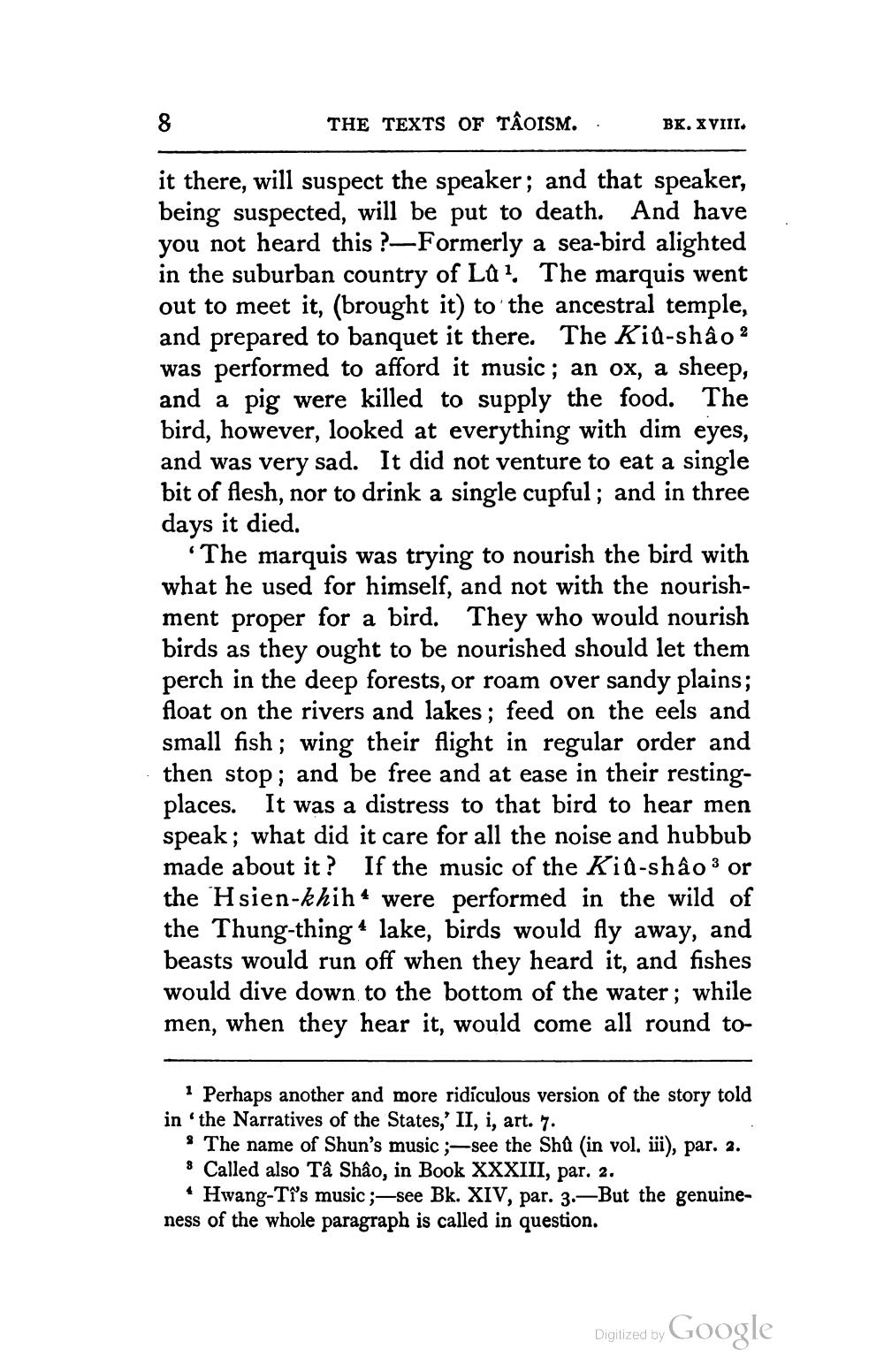________________
THE TEXTS OF TÂOISM..
BK. XVIII.
it there, will suspect the speaker; and that speaker, being suspected, will be put to death. And have you not heard this ?-Formerly a sea-bird alighted in the suburban country of Lal. The marquis went out to meet it, (brought it) to the ancestral temple, and prepared to banquet it there. The Kid-shâo 2 was performed to afford it music; an ox, a sheep, and a pig were killed to supply the food. The bird, however, looked at everything with dim eyes, and was very sad. It did not venture to eat a single bit of flesh, nor to drink a single cupful; and in three days it died.
*The marquis was trying to nourish the bird with what he used for himself, and not with the nourishment proper for a bird. They who would nourish birds as they ought to be nourished should let them perch in the deep forests, or roam over sandy plains; float on the rivers and lakes ; feed on the eels and small fish; wing their fight in regular order and then stop; and be free and at ease in their restingplaces. It was a distress to that bird to hear men speak; what did it care for all the noise and hubbub made about it? If the music of the Kid-shâo 3 or the Hsien-khih 4 were performed in the wild of the Thung-thing 4 lake, birds would ny away, and beasts would run off when they heard it, and fishes would dive down to the bottom of the water; while men, when they hear it, would come all round to
1 Perhaps another and more ridiculous version of the story told in the Narratives of the States,' II, i, art. 7.
* The name of Shun's music ;—see the Shů (in vol. iii), par. 2. 8 Called also Ta Shâo, in Book XXXIII, par. 2.
• Hwang-Ti's music;—see Bk. XIV, par. 3.—But the genuineness of the whole paragraph is called in question.
Digitized by Google




